Recovery of Tantalum through Crystallization of APT from Mother Liquor
- Details
- Category: Tungsten Information
- Published on Thursday, 08 July 2021 09:32
- Written by yuntao
- Hits: 1309
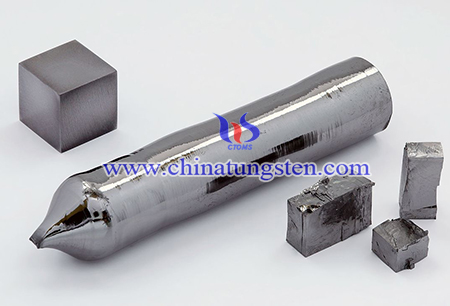
It is found that tantalum (Ta) and niobium (Nb) in concentrate of wolframite ((Fe,Mn)WO4) has been wasted: some of it goes to the insoluble residue after ammonium-leaching of the tungstic acid slurry; most of it goes to the solution of ammonium tungstate when (Fe,Mn)WO4 concentrate was digested by hydrochloric acid and the slurry of tungstic acid obtained was leached in ammonia. When the ammonium paratungstate (APT) was crystallized from the solution of ammonium tungstate, Ta and No were almost completely left in the mother liquor and their content reached up to 16 g/litre.
Read more: Recovery of Tantalum through Crystallization of APT from Mother Liquor
Single-Walled Carbon Nanotubes Fabricated By Decomposing Ammonium Paratungstate
- Details
- Category: Tungsten Information
- Published on Thursday, 08 July 2021 08:35
- Written by yuntao
- Hits: 1303
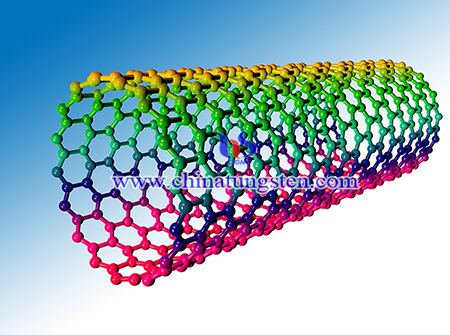
Single-walled carbon nanotubes (SWCNTs) have been an area of intense research since their discovery in 1993, owing to their extraordinary mechanical and unique electronic properties. It has been applied in fields including field-emission, SPM tips, and sensors. Catalyst is the decisive factor in fabrication of SWCNT by catalytic chemical vapor deposition (CCVD). The yield, purity, and textural properties of as-prepared SWCNTs were largely relied on the composition of the catalysts, the type of support material used, and the nature of the metal in the catalysts.
Read more: Single-Walled Carbon Nanotubes Fabricated By Decomposing Ammonium Paratungstate
Thermal Decomposition of APT to produce Crystalline Ammonium Tungsten Bronze
- Details
- Category: Tungsten Information
- Published on Thursday, 08 July 2021 07:39
- Written by yuntao
- Hits: 1294
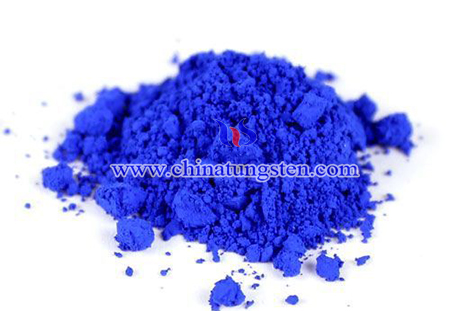
The metastable phases of tungsten oxides or oxide bronzes, such as the hexagonal and the pyrochlore-types AxWO3, have caught much attention because of their one- or three-dimensional opened-tunnelling structures. They have been used in the fields of electrochromic devices, humidity and gas sensors and secondary battery.
Read more: Thermal Decomposition of APT to produce Crystalline Ammonium Tungsten Bronze
Ammonium Paratungstate as Doping Source to Enhance Phase Transition Powder
- Details
- Category: Tungsten Information
- Published on Thursday, 08 July 2021 08:01
- Written by yuntao
- Hits: 1209
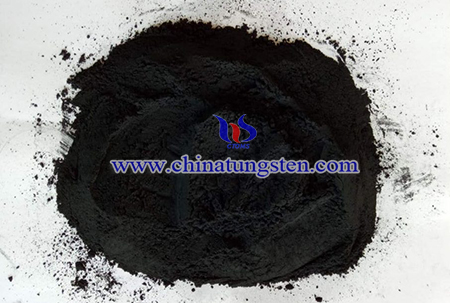
Vanadium dioxide (VO2) is a reversible first-order metal-insulator transition (MIT) at a critical temperature (Tc). It is generally believed that VO2 is a monoclinic structure (M), and presents semiconductive and relatively infrared transparent below Tc, whereas it transforms into tetragonal structure (R), and presents metallic and infrared reflection above Tc. These features make the VO2 suitable for the applications in intelligent energy windows coating, optical switching devices, optical data storage medium, electrodes for electrochromics, lithium batteries and supercapacitors, etc. Nevertheless, the high critical transition temperature of VO2 material (about 68 °C) limits its application.
Read more: Ammonium Paratungstate as Doping Source to Enhance Phase Transition Powder
ELM Technique Applied in APT Production with Less Environmental Effect
- Details
- Category: Tungsten Information
- Published on Thursday, 08 July 2021 07:33
- Written by yuntao
- Hits: 1180
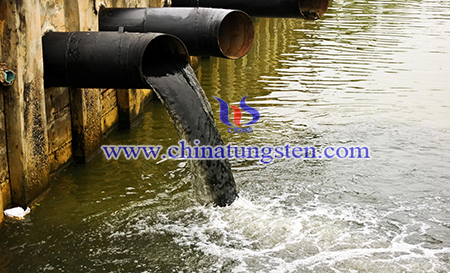
Ammonium paratungstate(APT)is white crystalline salt, with the chemical formula (NH4)10(H2W12O42)•4H2O. It is the most important raw material for most of tungsten products. Intermediates such as tungsten trioxide, tungsten blue oxide, tungstic acid, can be obtained from APT, either by thermal decomposition or chemical conversion.
Read more: ELM Technique Applied in APT Production with Less Environmental Effect
More Articles...
- The W–As Composite Nanopowders Utilizing Ammonium Paratungstate as Raw Material
- The Solvent Extraction Separation of Tungsten in The Form of APT from High Mo-Containing Solution
- W/TiC Nanocomposites Prepared with Ammonium Paratungstate for Various Applications
- Synthesis of High-Purity Tungsten Powder with APT for Application in HID Lamps





 sales@chinatungsten.com
sales@chinatungsten.com